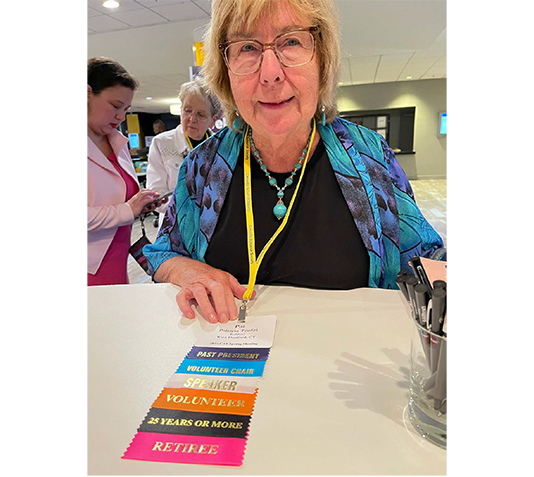My wife and I are back from the CAS Spring Meeting in Colorado Springs. It is a beautiful place, but it was rainy, overcast and cool during our stay.
I was happy to meet with friends I have known a long time and met quite a few new ones.
So far, my wife has prevailed in stopping me from peeling potatoes with my bench grinder power tool. (I have a grinder, but we are currently out of potatoes.) If you attended Ross Shafer’s presentation, you will understand what I am talking about. I’ll have more on this in a future column, if I succeed in my potato-peeling endeavor.
The sessions were good and one prompted me to focus on how we, as professionals, have changed over the years. The “Actuarial Modernization” session had some thought-provoking ideas. An important “gold nugget” was provided by one of the panelists who said: “We are moving from being supporters of the business to partners in the business to leaders of the business.”
I pondered the changes I have seen in the topics and the presentations over the years I have been attending the CAS meetings. I got to thinking about what the meetings will be like in 10, 20 or even 30 years from now.
How do we, as individuals, keep from going the way of the punch card? How do you, personally, avoid having your professional skills become irrelevant?
Futurists claim that 50 percent or 60 percent of the jobs that will exist in the next decade do not even exist today. My experience is that either the percent is too high or the time horizon too short; think of the jobs that existed in past years that are no longer widespread today. I recall typing pools, stenographers, travel agents and more. I started my career as an underwriter trainee. I started in the file room, which took up a significant amount of floor space. Metal file cabinets held the paper copies of the declarations page, inspection reports, motor vehicle records and other items pertaining to each insurance contract we wrote. (The claims department had its own file room.) I then rotated through the rating department, which comprised individuals who rated each insurance contract using the (paper) manual, rate sheets and pencil and paper (no calculators at that time). All of those departments are now gone, replaced by the power of the computer. Are the CAS and its members destined for the same fate?

The CAS “envisioned future,” which is part of the CAS Strategic Plan, is broken down into two parts. The first is to “be globally recognized as the preeminent resource in educating casualty actuaries and conducting research in casualty actuarial science.” The second part is that “CAS members will be recognized as the leading experts in the evaluation of hazard risk and the integration of hazard risk with strategic, financial, and operational risk.”
The first part of that goal is one for the CAS, as a society, to accomplish. CAS leadership knows it, is seeking to achieve it and, I believe, will realize that part of the goal.
The second part is for us, as members of that society, to make happen. How do we, as individuals, keep from going the way of the punch card? How do you, personally, avoid having your professional skills become irrelevant?
We tend to be comfortable with the status quo. Change is difficult, but change is also necessary for us to remain relevant. Are we watching the trees (pricing, reserving, capital and predictive modeling) and unable to see that the forest is burning? The quants, certified financial analysts, MBAs and more are seeking to take over our turf and, more importantly, the newly emerging practice areas. Why would any rational company pay big salaries or consulting fees for a credentialed actuary when they believe they can get it better and cheaper by hiring someone they believe can do the same work, but without the cost of the credentials?
I recommend that you take some time and think about your answer.
Here is my answer:
There are professionals who are better at (pure) math than actuaries, others who are more expert in insurance coverages and possibly some who are better at understanding insurance processes. The accountants and their finance cousins are likely better at accounting and finance than actuaries. There are individuals who are better at handling large volumes of data. But CAS members are the most skilled at evaluating hazard risk and integrating hazard risk with strategic, financial and operational risks.
If your company needed most or all of the skills above, you would need to assemble a whole team of people,
Or you can hire one actuary.
The actuary’s advantage is that she or he has all of that training and experience in her or his head and can better see the interactions among the various disciplines. In a sense, an actuary is a “team of one.”
When you think of it that way, an actuary just might be the least expensive team you can assemble.
Grover Edie, FCAS, is the AR Editor in Chief.











